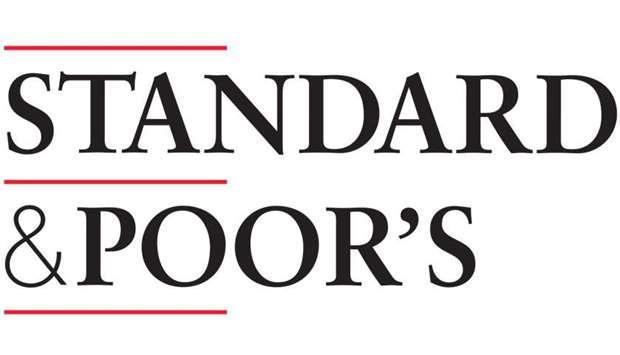
Gulf insurers' capital buffers strong enough to avoid negative rating action: S&P
(MENAFN- Gulf Times) The Gulf Co-operation Council (GCC) insurers' capital buffers are strong enough in the first wave of the Covid-19 to avoid negative rating action and the pandemic has offered opportunities for them to undertake product development, according to Standard & Poor's (S & P), a global credit rating agency.
The Covid-19 related claims would be "limited" since the Gulf governments are absorbing the costs, said Sachin Sahni, associate director (Insurance Rating); S & P told a webinar on GCC Insurance Market.
"Most GCC insurers are very well capitalised, supporting relatively high ratings," he said.
In a power point presentation, S & P analysts said they anticipate many insurers to report solid underwriting results in the half year of 2020, due to a sharp reduction in motor and medical claims offsetting some weaker investment returns.
However, asset volatility, an increase in claims to more normal levels and constrained economic conditions, will likely have a "negative" effect on growth and earnings prospects in the second half of this year.
Highlighting that no Covid-19 and oil price-related rating changes on GCC insurers so far; Sahni said with medical being one of the main lines of business written in GCC, the decision of governments to absorb the cost of Covid-19 claims has proven beneficial for insurers.
As the GCC has a relatively young population, with only 5%-10% of the population in each country older than 55, the number of severe cases and mortalities should also be lower than in heavily affected countries such as Italy, where about 35% of the population is 55 or older, it said.
"We believe that the impact on insurers from business-interruption claims will also be limited because only a small number of reinsurers or primary insurers in the region write this type of cover," Emir Mujkic, primary credit analyst said.
However, there could be more claims than currently anticipated if terms and conditions of certain policies also cover denial of access to shops, factories, and other premises because of forced closures ordered by governments, as seen in recent weeks, he said, adding in these cases, most policies would contain limits, and that overall claims costs should therefore be limited.
"Unlike in some states in the US, where authorities have suggested that insurers cover all business-interruption claims, there are currently no indications that GCC governments would require insurers to cover these types of claims," he said.
Highlighting that heightened focus on the need for protection, particularly in life and health lines, could boost demand; Sahni said the current pandemic has called for product development as there could be higher demand for newer products such as Covid-19 related medical and tourism policies.
The development of digital sales platforms to offset social distancing measures, especially on consumer lines, could ease client access going forward, he said.
Stronger regulations along with effective regulatory oversight to identify weak insurers which could accelerate the much awaited consolidation and also improve discipline and transparency, Sahni said.

Legal Disclaimer:
MENAFN provides the
information “as is” without warranty of any kind. We do not accept
any responsibility or liability for the accuracy, content, images,
videos, licenses, completeness, legality, or reliability of the information
contained in this article. If you have any complaints or copyright
issues related to this article, kindly contact the provider above.

















Comments
No comment